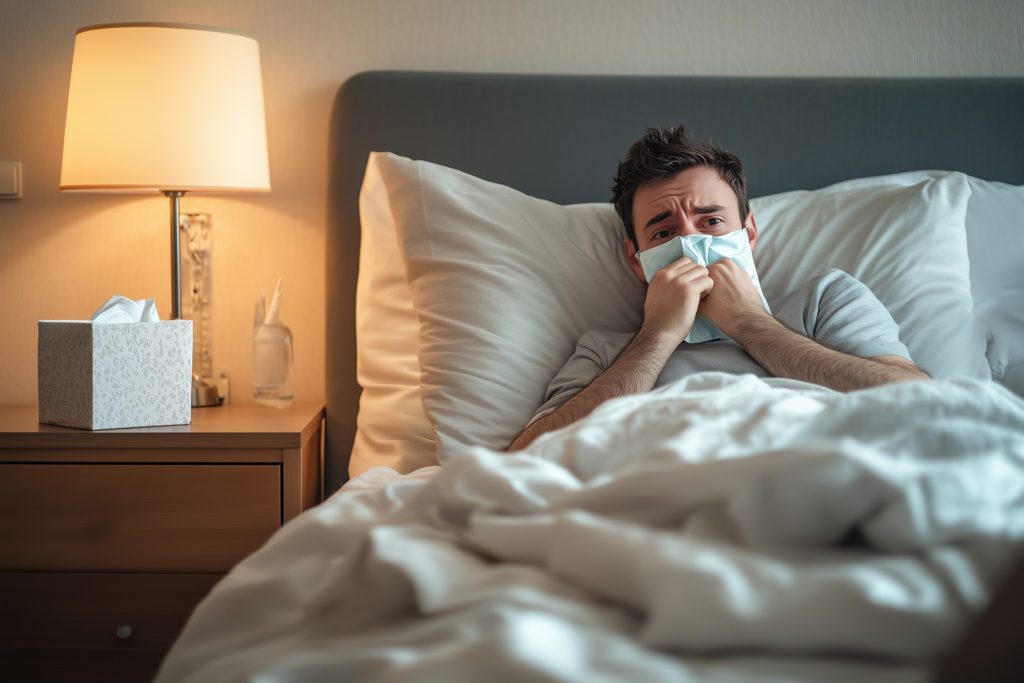
Oxygen Levels in Sleep Quality and Health
How oxygen levels fluctuate during sleep and what happens when they drop too low

Have you ever wondered why you wake up feeling utterly exhausted on some mornings while others make you feel energized and ready to take on the day? It’s not just because you stayed up binge-watching your favorite series. The real culprit might be something you haven’t even considered—oxygen levels during sleep.
Sleep is crucial for recharging our bodies and minds, but did you know that the quality of your sleep is heavily influenced by how much oxygen you’re getting? Yep, oxygen isn’t just for staying alive during the day; it plays a vital role in how well you rest at night. From keeping your brain sharp to ensuring your heart doesn’t work overtime, oxygen levels in sleep are a big deal.
In this article, we’ll discuss oxygen levels and sleep quality. We’ll explore how oxygen levels fluctuate during sleep, what happens when they drop too low, and what you can do to ensure you’re breathing easily all night long.
Oxygen Levels in Sleep
Oxygen levels, or blood oxygen saturation, refer to the amount of oxygen your blood is carrying at any given time. During the day, your oxygen levels usually stay pretty steady, thanks to your lungs doing their thing.
When you sleep, your body goes through various stages, including the all-important REM (Rapid Eye Movement) stage, where dreaming happens. During these stages, your breathing pattern changes, and so do your oxygen levels. For most of us, these fluctuations are normal and harmless. However, if your oxygen levels drop too low, it can lead to restless sleep and a whole host of other issues.
So, why is maintaining good oxygen levels during sleep so important? Simply put, oxygen is essential for your body’s repair and recovery processes. When you’re snoozing, your body is busy fixing cells, fighting off infections, and processing memories. Without enough oxygen, these critical tasks can’t be done effectively.
Impact of Low Oxygen Levels on Sleep Quality
Imagine trying to run a marathon while breathing through a straw. Sounds impossible, right? That’s what your body experiences when it encounters low oxygen levels during sleep.
Low oxygen levels, or hypoxia, can be caused by several factors. The most common is sleep apnea, a condition where your airway gets blocked, causing you to stop breathing multiple times throughout the night. Other culprits include respiratory issues like chronic obstructive pulmonary disease (COPD) or sleeping in an environment with poor air quality.
So, what happens when your oxygen levels drop while you’re in dreamland? For starters, your sleep quality takes a nosedive. You might wake up frequently, struggle to reach deep sleep stages, or have fragmented sleep cycles.
But it doesn’t stop there. Low oxygen levels can also lead to a host of physical symptoms. You might wake up with a headache, feel excessively tired during the day, or even experience mood swings. And if you think that’s bad, long-term low oxygen levels can contribute to more serious health issues like high blood pressure, heart disease, and even cognitive impairments.
In short, low oxygen levels turn your restful nights into a chaotic mess. Your body and brain don’t get the downtime they need to function correctly, leading to a vicious cycle of poor sleep and deteriorating health.
Health Risks Associated with Low Oxygen Levels in Sleep
We’ve established that low oxygen levels can wreck your sleep quality, but what about the long-term health risks? Unfortunately, it’s not just about feeling groggy and grumpy. Low oxygen levels during sleep can lead to pretty nasty health issues.
Cardiovascular Problems
When oxygen levels drop, your heart has to pump harder to get enough oxygenated blood to your body. Over time, this can lead to cardiovascular problems such as high blood pressure, arrhythmias (irregular heartbeats), and even heart attacks.
Cognitive Performance
Your brain needs a steady supply of oxygen to function correctly. When oxygen levels dip, your brain doesn’t get the fuel it needs, leading to cognitive impairments. You might find it harder to concentrate, remember things, or even make decisions. In severe cases, chronic low oxygen levels can contribute to conditions like dementia.
Weak Immune System
Low oxygen levels can also weaken your immune system, making you more susceptible to infections and illnesses. Your body’s ability to fight off viruses and bacteria diminishes, leading to a higher risk of chronic diseases.
Metabolic Issues
Low oxygen levels are linked to metabolic issues, including insulin resistance and diabetes.
We know it's a lot to take. But don’t panic—there are ways to monitor and improve your oxygen levels, ensuring you wake up feeling refreshed and ready to tackle the day.
How to Monitor and Improve Oxygen Levels in Sleep?
Now that we’ve painted a pretty grim picture of what low oxygen levels can do to your sleep and health, let’s switch gears and focus on the positive. The good news is, you can monitor and improve your oxygen levels during sleep with a few smart strategies and tools.
First off, let’s talk about monitoring. Devices like pulse oximeters and sleep-tracking apps like Pillow can help you keep an eye on your oxygen levels. These applications measure the amount of oxygen in your blood and provide valuable insights into your sleep patterns. By tracking your oxygen levels, you can identify any issues and take steps to address them.
So, how can you improve your oxygen levels? Here are a few tips:
Sleep Position
Your sleeping position can significantly impact your oxygen levels. Try sleeping on your side instead of your back to keep your airways open. It might feel a bit awkward at first, but your body will thank you.
Healthy Lifestyle
Maintaining a healthy lifestyle can do wonders for your sleep. Regular exercise, a balanced diet, and avoiding smoking can improve lung function and oxygen levels. Plus, staying hydrated helps keep your airways clear.
Optimize Your Sleep Environment
Make sure your bedroom is well-ventilated and free from allergens. Consider using an air purifier to improve air quality. A clean, fresh environment promotes better breathing and, consequently, better sleep.
Medical Consultation
If you suspect you have a condition like sleep apnea or another respiratory issue, don’t hesitate to consult a healthcare professional. They can provide treatments like CPAP (Continuous Positive Airway Pressure) therapy to help maintain healthy oxygen levels during sleep.
We’ve covered a lot of ground today, from the basics of oxygen levels in sleep to the serious health risks of chronic low oxygen levels. The takeaway? Maintaining healthy oxygen levels during sleep is crucial for both your nightly rest and long-term health.

Written by
Dr Aqsa
As a Medical Doctor, Dr Aqsa, uses her knowledge to craft complex medical information that is understandable to the general public. For years, she has tried to improve health literacy and empower readers with valuable health knowledge through her articles, blog posts, and educational materials.
Download Pillow
Get help
Press & News
Legal
Connect
X (Twitter)
Company
Copyright © Neybox Digital Ltd.



